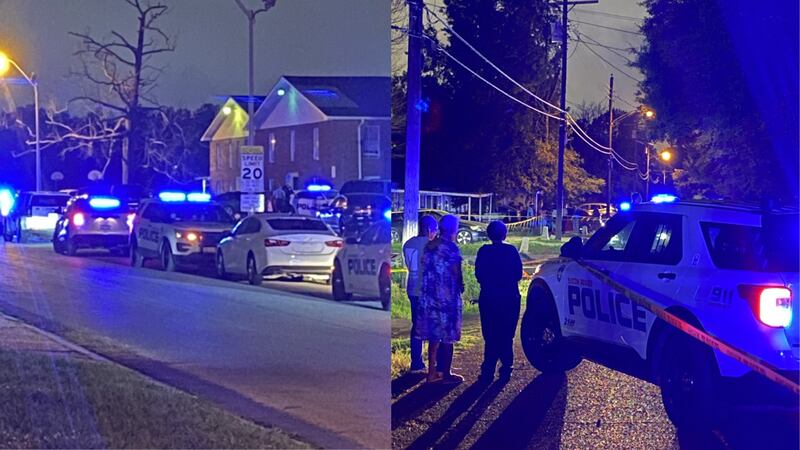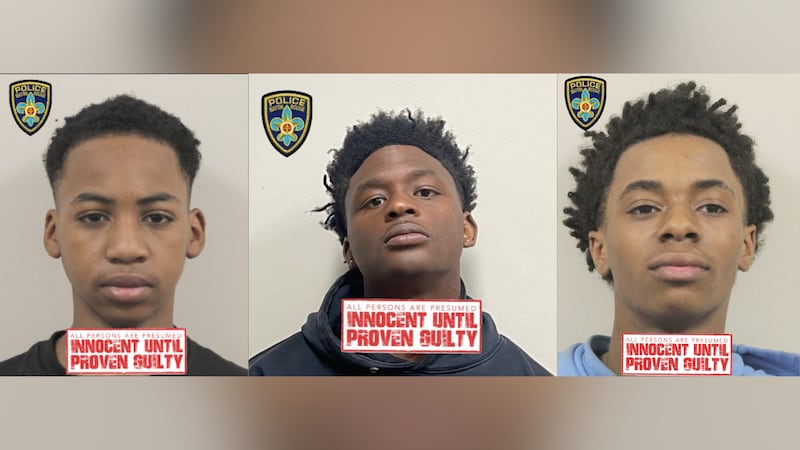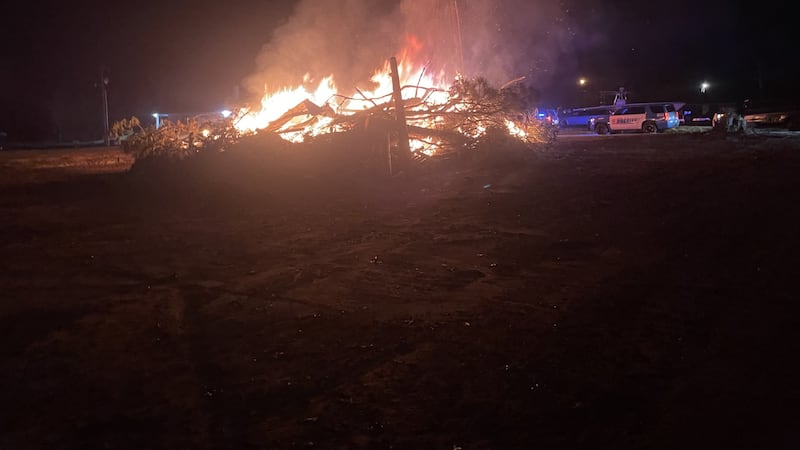Women smuggled across U.S. border and sex trafficked in Baton Rouge, federal complaint says
BATON ROUGE, La. (WAFB) - A Baton Rouge sex trafficking case gives new insight into how accused sex traffickers lure foreign women away from their home countries to become sex workers and then pressure them to lure other women into the same situation.
A federal complaint filed in the Middle District of Louisiana targets a sex trafficking operation allegedly organized and operated by a Venezuelan criminal organization called “Tren de Aragua” or TDA and one victim who helped federal investigators identify the alleged leader of its American operation.
The victim’s story begins in Venezuela. According to the complaint, TDA members recruited her into the scheme with the promise of a home to work in, immigration paperwork, an immigration attorney, and help getting her family into the United States.
The victim learned that she’d have to pay a $30,000 debt through sex work but would be allowed to keep all profits from her first week, according to the complaint. The victim was encouraged to bring two friends to work as prostitutes, according to the complaint, and the TDA would wipe $2,500 off of her debt in exchange.
According to the complaint, the alleged leader of the American operation taught the victim how to convince law enforcement at the southwestern U.S. border that she was seeking asylum in America because of a “generic” problem.
After being offered help escaping the TDA while performing sex work in Texas, the victim was connected with investigators in Baton Rouge. She informed them that the alleged leader of the American operation had allegedly paid a “charity” organization to fly her to Baton Rouge.
Though investigators in Baton Rouge also attempted to help the woman escape, she opted to stay under TDA’s control because she feared that the gang would harm her family members, according to the complaint.
In April, the victim was flown to Baton Rouge and brought to an apartment on S. Harrell’s Ferry Road where at least one other victim was housed.

Later that month, the East Baton Rouge Parish Sheriff’s Office sent deputies into the apartment to investigate a 911 call. Once inside, they found used condoms, cash, sex toys, cellphones displaying requests from possible clients, and a ledger where the victim’s “debt” was documented, according to the complaint.
In addition to rescuing the victims, investigators were able to arrest Allbert Herrera Machado. According to the complaint, Machado told investigators he had only been in Louisiana for a week before he was offered a job by a friend.
Machado explained that he was only told that the job would entail setting up sexual encounters between the two victims and several “clients,” but he was not aware of how serious the situation was until the deputies were involved, according to the complaint.
The victims explained that Machado acted as their handler, according to the complaint. Essentially, he was responsible for collecting cash and keeping the ledger to document how much money each victim made through sex acts each day and how much debt was still owed.
Machado was also responsible for enforcing the “house rules” which included a rule that the victims could only rest between the hours of 4 a.m. and 8 a.m., and only if no customers seeking their attention during that time, according to the complaint.
Machado was indicted this month in Louisiana’s Middle District. He is currently in state custody pending transfer to federal custody per a federal court order.
The victims were able to help federal prosecutors build criminal cases against two other alleged gang members, including the alleged leader of the American operation.
Osleidy Vanesa Chourio Diaz allegedly operated a Zelle account used to collect payment from TDA’s clients and managed cards used to pay for the victim’s travel expenses, according to the complaint.
According to the complaint, one victim described Diaz as the “b***h” of the operation, while another person named Josmar Jesus Zambrano Chirinos was considered the “brains” of the American operation.
The victims refer to Zambrano Chirinos only as Zambrano throughout the complaint and explain that he may have as many as 30 females spread out across homes in Virginia, Louisiana, Texas, and Florida.
According to the complaint, Zambrano headed up the American operation on behalf of TDA and was responsible for making threats against the lives of their family members.
The victims told investigators that Zambrano kept constant watch over the operation in Baton Rouge and communicated with them through a nanny camera on the only day he wasn’t physically present, according to the complaint.
Both Diaz and Zambrano were apprehended and indicted in Louisiana’s Middle District this month on charges related to the operation. They are being held in federal custody pending trial.
It’s unclear what happened to the two victims whose participation in the investigation led to the arrests. It is also unclear whether any of the other alleged victims were rescued.
Brittany Theriot, a special agent for Homeland Security Investigations within the Department of Homeland Security says it’s crucial to be vigilant for signs of human trafficking especially in communities made up of immigrants.
She says there is no one way to recognize that a trafficking situation is happening, but if you see something it’s important that you say something.
“Oftentimes we will see victims that are brought in from other states and other countries, and they cannot articulate to us how they got here, how long they are staying here, where they are going to lay their head at night, and so things like that are things that are often red flags for us,” said Theriot. “If they are seeing a bunch of these red flags, it should make that hair on the back of your neck stick up and say something might not be right here.”
Report suspected sex trafficking to the Louisiana state police hotline, 800-434-8007, or dial 911 for your local police. Victims who need help can also call the national human trafficking hotline at 888-373-7888.
Click here to report a typo.
Copyright 2024 WAFB. All rights reserved.













